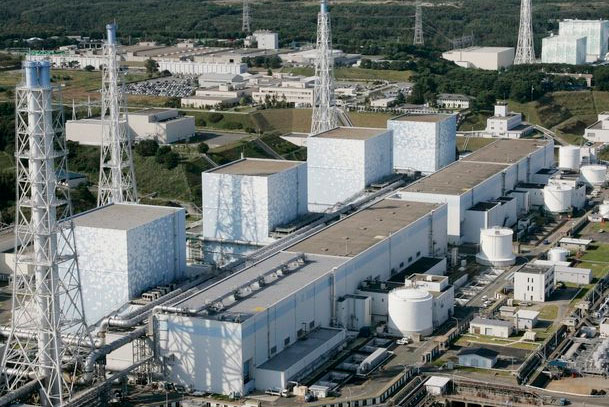Radiation from Japan continues to escape to the ocean
Waste water containing radioactive materials from Japan's Fukushima I nuclear power plants leaked to the Pacific Ocean.
Tokyo Electric Power Company (TEPCO) yesterday confirmed about 150 liters of waste water containing highly toxic strontium radioactive elements capable of causing bone cancer, flowed from the Fukushima I nuclear power plant to the ocean, AFP reported.

The scene inside the Fukushima I. nuclear power plant
Previously one day TEPCO announced that they discovered 45 tons of leaked water around the factory's wastewater treatment system. According to TEPCO, about 300 liters of wastewater has flowed into a gutter that leads to the ocean before leaks are sealed. Experts believe this leak contains up to 26 billion becquerels of radioactive material.
However, TEPCO claims that human health is not affected even if we eat caught seafood in the leaked area every day for a year.
"We once again sincerely apologize for causing worries and troubles for people in the area in particular and society in general because of leaking radioactive water ," TEPCO's statement stated.
In the weeks following the March 11 earthquake and tsunami, TEPCO dumped 10,000 tons of low-concentration radioactive water into the Pacific Ocean. The newspapers then reported that the radioactive material was widely dispersed and did not threaten human or animal life.
TEPCO management is forced to suspend the Fukushima I plant's temporary wastewater treatment system after it has suffered a series of incidents. But they confirmed that the sewage leak did not hinder the plan to shut down the reactors at the end of the year.
- Diving, anti-radiation underwear
- The amount of radiation in the Pacific Ocean is 6 times higher
- The smart way to escape in Japan is worth learning when apartment fire occurs
- Japan invented paper that helps prevent radiation
- How dangerous is radiation?
- Japan seeks to reduce radiation levels in Fukushima
- This great invention is the solution to save hundreds of people in the sea of fire
- Unusually high radiation detection in the Japanese capital
- Vietnam measures radiation levels
- Radiation in Japan is no longer dangerous
- Radiation test for seafood imported from Japan
- Japan started to respond to nuclear radiation
 Is the magnetic North Pole shift dangerous to humanity?
Is the magnetic North Pole shift dangerous to humanity? Washington legalizes the recycling of human bodies into fertilizer
Washington legalizes the recycling of human bodies into fertilizer Lightning stone - the mysterious guest
Lightning stone - the mysterious guest Stunned by the mysterious sunset, strange appearance
Stunned by the mysterious sunset, strange appearance